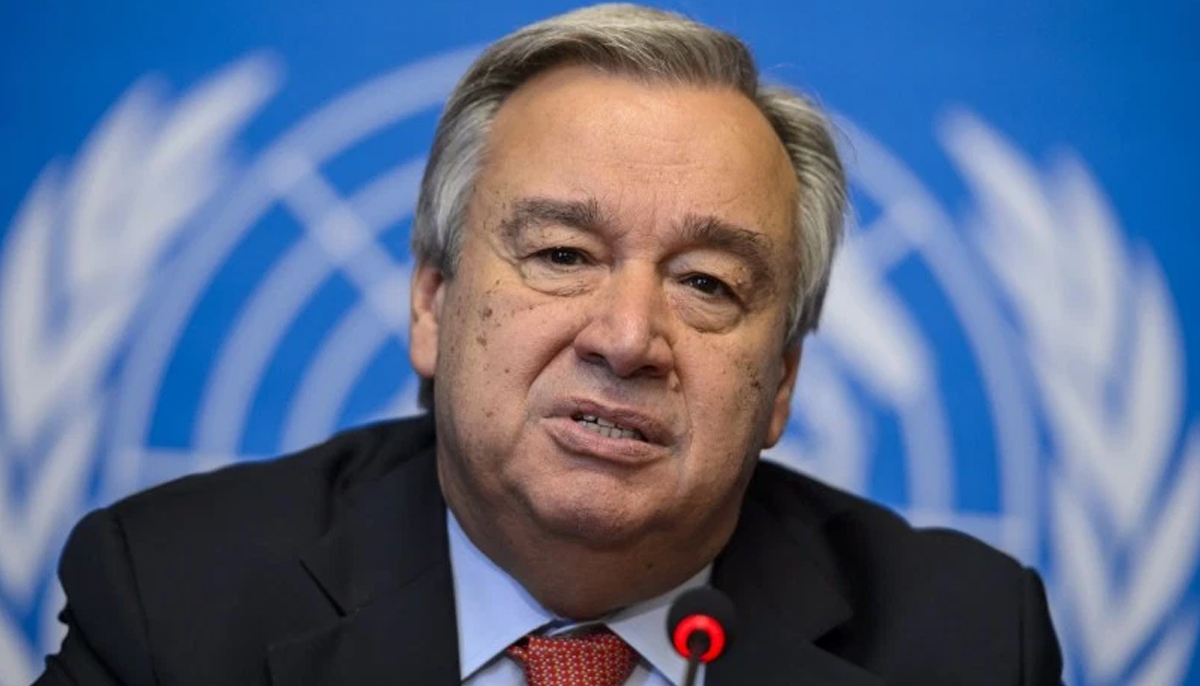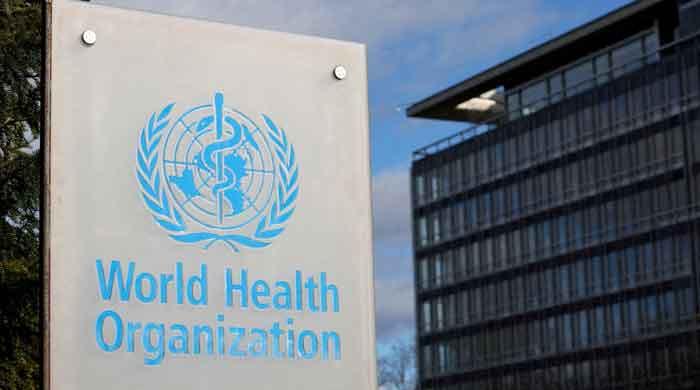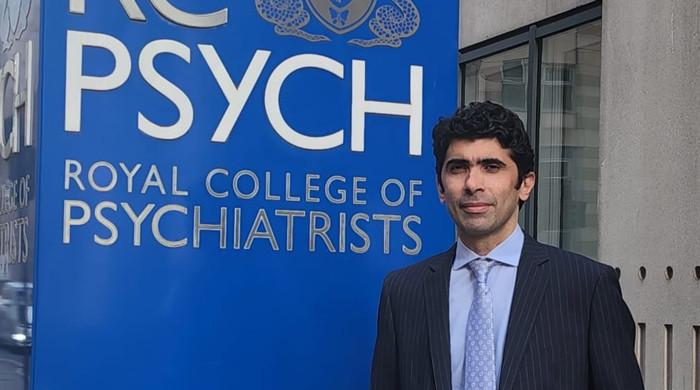UN launches international push for vaccine to defeat virus pandemic
'We face a global public enemy like no other,' says UNSG Antonio Guterres
April 25, 2020

WASHINGTON: The global coronavirus death toll approached 200,000 on Saturday as the United Nations launched an international push for a vaccine to defeat the pandemic.
Governments around the world are struggling to limit the economic devastation unleashed by the virus, which has infected nearly 2.8 million people and left half of humanity under some form of lockdown.
The scale of the coronavirus pandemic has forced medical research on the virus to move at unprecedented speed, but effective treatments are still far off and the United Nations chief said the effort will require cooperation on a global scale.
"We face a global public enemy like no other," UN Secretary-General Antonio Guterres told a virtual briefing on Friday, asking for international organizations, world leaders and the private sector to join the effort.
"A world free of COVID-19 requires the most massive public health effort in history."
Any vaccine should be safe, affordable and available to all, Guterres said at the meeting, which was also attended by the leaders of Germany and France.
But notably absent were the leaders of China, where the virus first emerged late last year, and the United States, which has accused the UN's World Health Organization of not warning quickly enough about the original outbreak.
The spread of COVID-19, the disease caused by coronavirus, is increasing other medical risks as well with the WHO warning nearly 400,000 more people could die from malaria because of disruption to the supply of mosquito nets and medicines.
Saturday marked World Malaria Day, a disease which the WHO said could kill around 770,000 this year, or "twice as much as in 2018".
Early stages
With more than four billion people on lockdown or stay-at-home orders to slow the spread of the virus, governments are weighing how to lift restrictions without causing a spike in infections and how to revive economies battered by weeks of closure.
The daily death toll in Western countries seems to be falling, a sign hopeful epidemiologists had been looking for, but the WHO has warned that other nations are still in the early stages of the fight. Global COVID-19 deaths have climbed past 195,000, according to an AFP tally, but new reported cases appear to have leveled off at about 80,000 a day.
The United States is the hardest-hit country by far in the pandemic, recording more than 51,000 deaths and over 890,000 infections.
The UN chief's urgent vaccine appeal came a day after US President Donald Trump prompted outcry and ridicule with his suggestion that disinfectants be used to treat coronavirus patients.
As experts — and disinfectant manufacturers — rushed to caution against any such dangerous experiment, the president tried to walk back his comments, saying he had been speaking "sarcastically."
"I can't believe I have to say this, but please don't drink bleach," tweeted Joe Biden, the presumptive Democratic presidential nominee to face Trump in November's election.
The world's biggest economy has been hammered by the pandemic, with 26 million jobs lost since the crisis began, and American leaders are under pressure to find ways to ease social distancing measures.
Despite criticism from Trump, the governor of Georgia allowed some businesses, including nail salons and bowling alleys, to reopen on Friday, sparking both criticism and relief.
The mayor of the state's capital Atlanta condemned the "irresponsible" move, telling ABC News: "There is nothing essential about going to a bowling alley or giving a manicure in the middle of a pandemic."
In Michigan, Governor Gretchen Whitmer extended her stay-at-home order until May 15, but she eased some restrictions by allowing landscapers and bike mechanics to return to work, and ended prohibitions against golfing and motorboating.
Lifting lockdown
The unprecedented situation has left the world staring at its worst downturn since the Great Depression, and world leaders are trying to balance public health concerns with economic need.
Beyond the US, other countries have already started loosening restrictions.
Sri Lanka said it would lift a nationwide curfew on Monday after more than five weeks, as Belgium became the latest European nation to announce an easing from mid-May.
In France, which will be on lockdown until May 11, residents still confined to home have taken to praising health workers and protesting their frustrations with officials on painted banners hung outside their windows.
"Thank you to the caregivers, shame on the leaders" read one such banner hanging outside a building in a Paris suburb.
On the other side of the world in Australia and New Zealand, people held vigils from the isolation of their own driveways to pay tribute to their war veterans on Anzac Day.











